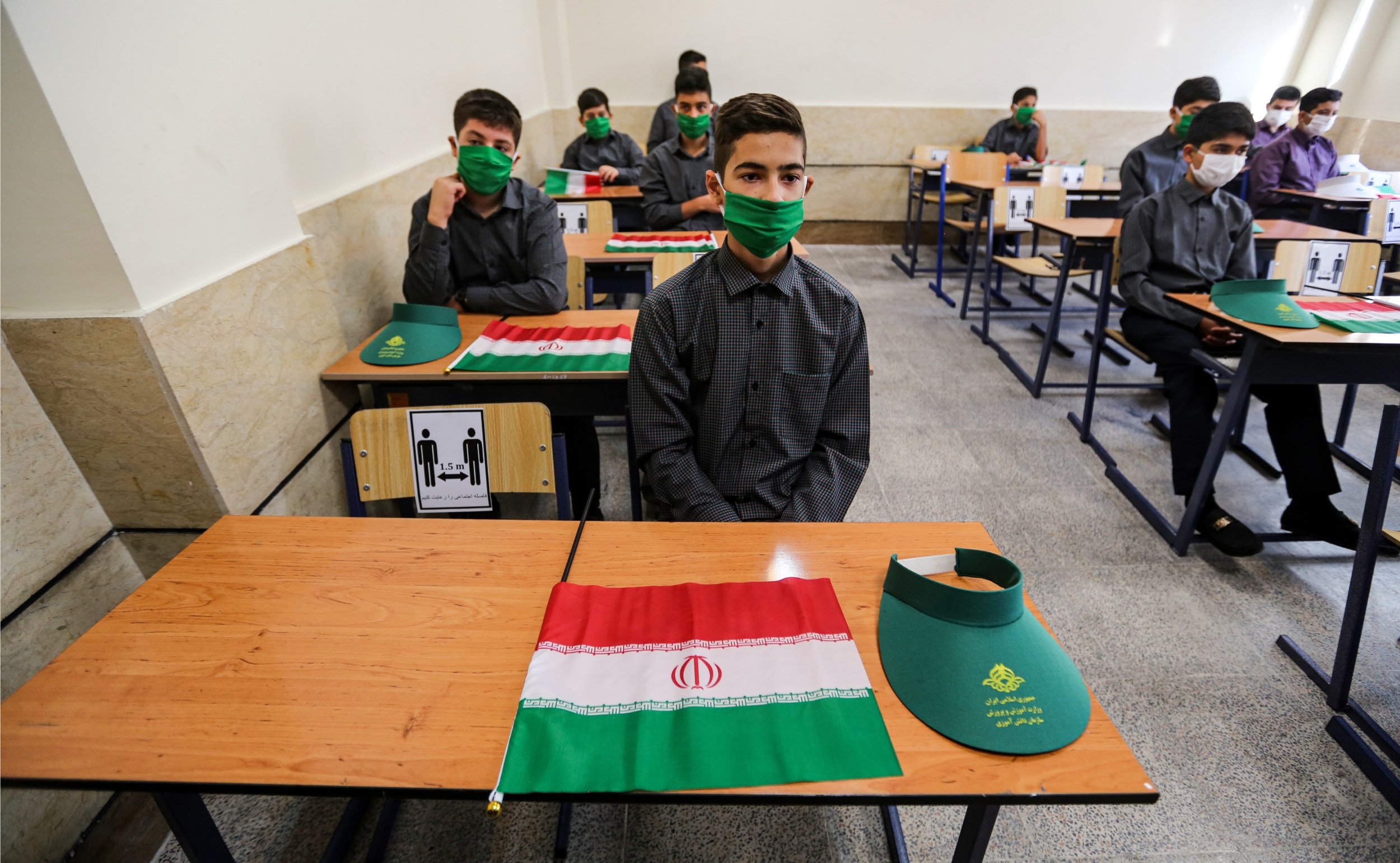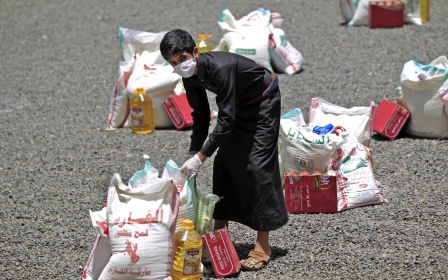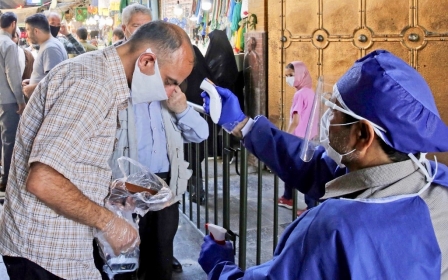Coronavirus: Iran reopens schools amid pandemic concerns

Schools in Iran reopened to 15 million students on Saturday after a seven-month closure, despite concerns over increased spread of the coronavirus in the country.
"This year, we shoulder a heavier burden of responsibility toward our students," said President Hassan Rouhani, who oversaw the opening of schools in a video conference broadcast live on state television.
'This year, we shoulder a heavier burden of responsibility toward our students'
- President Hassan Rouhani
Education and health are equally important to society, he said, but added that parents would not be forced to send their children back to school.
Iranian media said that religious seminaries also reopened on Saturday to about 50,000 students.
Several medical professionals have voiced concerns over the reopening of schools and universities in Iran, one of the countries worst-hit by the coronavirus pandemic in the Middle East.
New MEE newsletter: Jerusalem Dispatch
Sign up to get the latest insights and analysis on Israel-Palestine, alongside Turkey Unpacked and other MEE newsletters
Dr Mohammad Reza Zafarghandi, the government-appointed head of Iran's Medical Council, said in a letter to the education minister that the "surprise decision to reopen schools would no doubt lead to an increased burden" on the country's medical workers.
"When an epidemic hits, schools are the first places that should be closed and the last to be reopened," Zafarghandi was quoted as saying by the semi-official ISNA news agency.
Iran's death toll from the coronavirus has risen by 110 to 22,154, health ministry spokeswoman Sima Sadat Lari said on Saturday, while the total number of identified cases spiked to 384,666.
Middle East Eye delivers independent and unrivalled coverage and analysis of the Middle East, North Africa and beyond. To learn more about republishing this content and the associated fees, please fill out this form. More about MEE can be found here.




